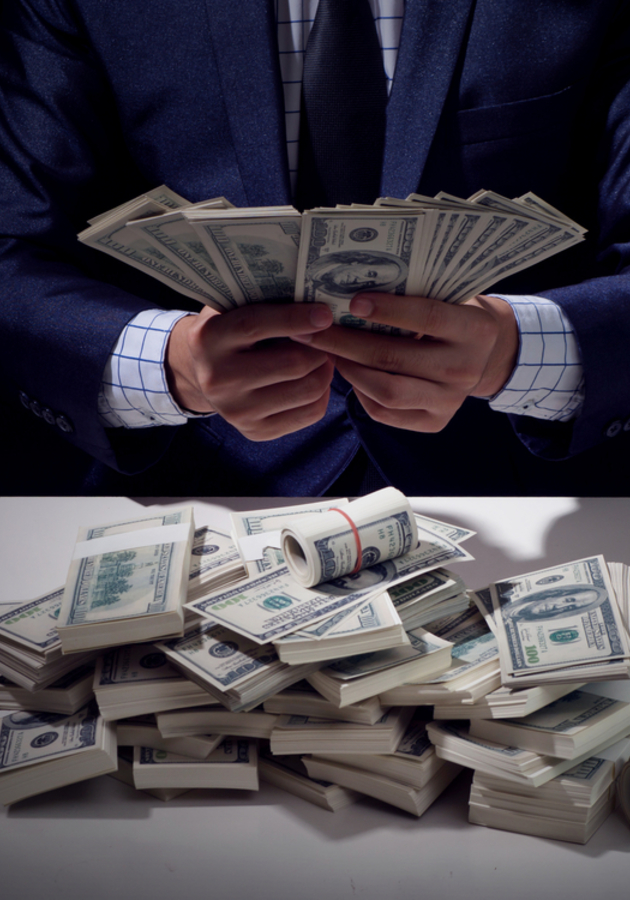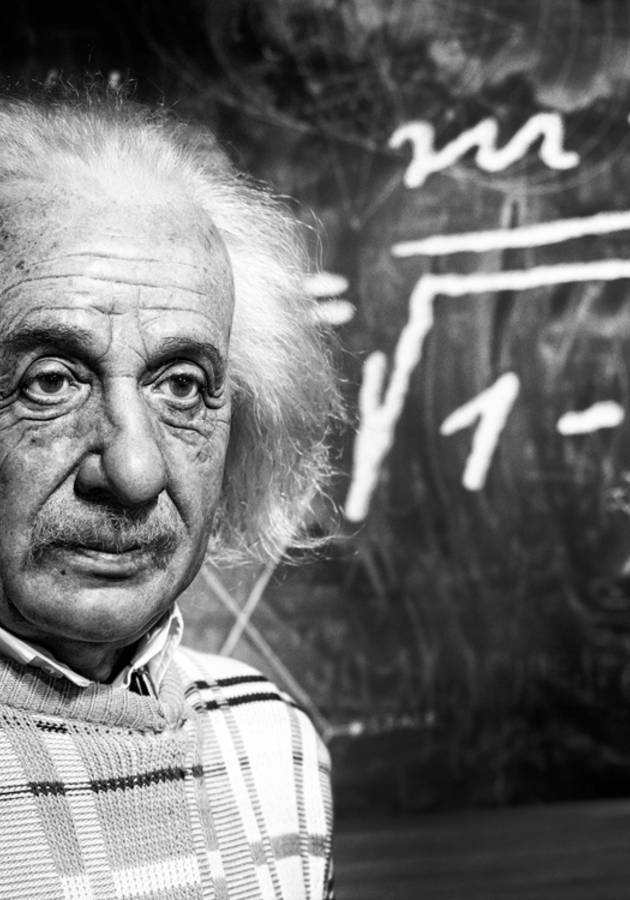In 2020, a court in Malaysia sentenced Najib Razak, the country’s former prime minister, to 12 years in jail for defrauding millions of dollars from a national investment fund. Even though the central theme of ‘’Billion Dollar Whale’’ is this corruption case in Malaysia, the story doesn’t revolve around Razak much, but his associate Jho Low who was actually the mastermind of one of the biggest financial heists in history. So, who was Jho Low, and how did he manage to pull off a multi-billion dollar scam? Get ready to find out!
Million-dollar birthday party
Apart from awards shows, rare are the events that gather many top actors and musicians together in one place. A celebration of Jho Low’s 31st birthday in 2012 was the exception. On a warm November night, Chairman Suites at the Palazzo Hotel accommodated dozens of celebrities, among which some even received thousands of dollars to turn up to the event. The guest list included Leonardo Di Caprio, Benicio Del Toro, Kanye West, Kim Kardashian, Paris Hilton, Bradley Cooper, and Britney Spears, to name a few. Fascinatingly, they all were there for the 31-year-old birthday boy, but almost none of them could really claim to know his story. Some rumors said he was an Asian arms dealer. Others claimed he inherited millions from his grandfather. Low alone did not like to reveal much about himself. Even at parties he hosted, he mingled only to make sure everyone was having a good time. And everyone always did because—who would be bored with Korean singer Psy performing Gangnam Style, Ludacris and Chris Brown rapping, and Britney Spears popping out of the cake singing Happy Birthday?
If the guest list did not impress you much, wait until you hear about some of the presents Low got. Noah Tepperberg and Jason Strauss, owners of the Marquee Nightclub where Low had spent tens of millions of dollars, gave him a bright red Lamborghini. Someone gave him three high-end Ducati motorcycles. Szen, Low’s brother, bought him a $2.5 million Bugatti Veyron. Of course, the value of all the gifts certainly wasn’t higher compared to the money spent on the party guests and its organization.
During only a few years, Low organized numerous parties resembling the one we briefly described above and financed all of them from the Malaysian government fund. In addition, Low spent millions to shower his friends and acquaintances with expensive gifts, build a Hollywood production company called Red Granite Pictures, and commission Equanimity, one of the world’s grandest yachts.
So, how did Low manage to get away with looting his state for years? If we look at his biography, it turns out he started planning the whole thing pretty early, when he was a 17-year old high school student.
Asian Great Gatsby
We could say that throughout his whole life, Low had worked the most on building his public image. From his early high school days, he wanted to present himself as someone who owned enormous wealth. Although his family was pretty well off, the sums of money Low had at his disposal were not enough to satisfy his needs. However, it was enough to get him close to the exclusive world of the rich, which he desperately wanted to join.
When Low was 17-years old, his father sent him to the prestigious British Harrow School, which was popular among rich Asians at the time. The school was, allegedly, an opening door into Oxford or Cambridge, or, in Low’s case, a place to make contacts with the elite, such as the son of the sultan of Brunei, an oil-rich country near Malaysia, and Riza Aziz, the stepson of Malaysia’s defense minister, Najib Razak. Eager to impress his classmates, Low borrowed a 160-foot yacht from his father's acquaintance to show it to them when they came to visit him one summer. To make sure they would not doubt the boat was his, he replaced the photos of its owner with those of his own family.
After graduating from Harrow School, Low continued his studies at business-focused Wharton School, whose alumni included Warren Buffett and Donald Trump. However, more than educating himself in the finance field, Low worked hard to socialize and build contacts. It was then that he began throwing the parties he later became known for. His friends especially remember the one he organized for his 20th birthday because of the attractive dancers who served sushi on their bodies that were covered with only lettuce-leaf bikinis.
In 2003, two years after enrolling at Wharton, Low asked his Arab friends to introduce him to the richest families and most influential firms in the Middle East. As it turned out, a few years later, the connection he made on this trip would change the course of his life forever.
The powerful Razak family
In 2005, Low ended his senior year at Wharton with a clear plan in mind: return to Malaysia and find Middle Eastern investors to get involved in projects in his country. At that moment, he already had his first company,the British Virgin Islands-based Wynton Group he set up during his final semester. A young financier with his own company and valuable Wharton and Harrow contacts, Low was ambitious. The only thing he needed to find was an influential backer in Malaysia. And he knew whom to reach out to—the powerful political family of Najib Razak.
Like many politicians, Najib Razak was known for being corrupt. In the authors’ words, he ‘’didn’t bother himself much with the mundane details of governance, preferring to attend events and make speeches.’’ When Low met Najib, he held the position of deputy minister with ambitions to follow in his father's footsteps of becoming a prime minister. All he needed were impressive credentials, and the person who could help him get them was Jho Low.
In 2007, thanks to his Middle Eastern contacts, Low helped Khazanah, Malaysia’s sovereign wealth fund, get a substantial investment from Abu Dhabi-based company, Mubadala Development Co. The young Malaysian wisely offered Najib to take credit for the deal, and Najib, desperate to improve his public image, accepted Low’s offer. However, their collaboration did not end here.
As a prime minister, Najib had a dream to turn Malaysia into a developed nation within a few years. For that, he needed a major source of capital, so he formed a new Malaysian sovereign wealth fund—1Malaysia Development Berhad (1MDB). The 1MDB fund was supposed to raise money in bonds from Middle Eastern investors and channel it into projects that would promote economic development in Malaysia. Now Low saw an opportunity for himself—he asked Najib to give him a free hand to run the fund, and, since he owed him a favor, Najib could not refuse. The heist could finally start.
Low’s methods for siphoning money
One of Jho Low’s trademark methods for siphoning millions from 1MDB was setting up ‘’look-alike offshore companies’’ that made it appear as though he had the backing of Middle Eastern sovereign wealth funds. For instance, when he needed money to purchase the construction companies and win contracts on the Iskandar development, Low set up two shell companies in Seychelles. He named them—ADIA Investment Corporation and KIA Investment Corporation—similar to the names of companies existing in Abu Dhabi (Investment Authority, or ADIA) and Kuwait (Kuwait Investment Authority, or KIA.) Of course, these companies were purely Low’s creation and had no connections to these two multi-billion-dollar sovereign wealth funds.
When founding ADIA Investment Corporation, Low executed another financial trick of issuing only one unregistered company’s share, valued at $1 and controlled by whoever physically held the stock certificate. These “bearer shares” allowed owners of companies to hide behind layers of secrecy and made it nearly impossible for regulators to determine the owner of an asset at any given point in time. Although banned in Great Britain, the U.S., and many other countries, the practice of bearer shares was then still permitted in Seychelles.
While making investments worth millions of dollars, Low did not forget the man who initially made everything possible. Since the early days of the scheme, Low transferred millions from 1MDB to his personal accounts and then used the money to shower Najib’s family with presents. He bought them a string of luxurious properties in London, Los Angeles, and New York. To bribe Najib’s wife, Low spent tens of millions of dollars to buy her jewelry. None of them wanted to know about the origins of the money for these abnormally expensive presents. As long as the Low’s name was behind these purchases, Najib considered his own hands clean.
Najib profited from making Low in charge of the fund and Goldman Sachs from selling bonds for it. To be precise, Goldman Sachs helped Low raise $6.5 billion for 1MDB by selling bonds bought at a discount to investors willing to pay a higher price. In return, Goldman got fees that were a hundred times higher than the typical ones. ‘’In total, over just twelve months,’’ the authors note, ‘’the bank had earned nearly $600 million from selling three bonds for the 1MDB fund—two hundred times the typical fee.’’
The beginning of Low’s ending
In 2010, Tarek Obaid, cofounder of PetroSaudi International, an oil company that partnered with the 1MDB fund, named his friend Xavier Justo director of their London office. However, as Justo failed to deliver promised millions and was also paranoid about the company’s deal with 1MDB, he decided to quit the job a year later. Only, there was one problem—Obaid did not want to pay the money he owed Justo. ‘’Another word from you on that, and we’re finished,” he replied to Justo’s email in which he asked for his severance pay. Justo did not feel threatened by this message but was looking for ways to gain leverage in his dispute. He managed to get a copy of PetroSaudi’s computer servers that contained 140 gigabytes of data, including 448,000 emails, documents, and other official papers holding details on how Low and Obaid had worked to take money from 1MDB.
In 2013, wanting to compensate for his financial loss, Justo sold the data in question to British journalist Clare Rewcastle-Brown who was digging about Jho Low’s secret role in the 1MDB. With the help of a benefactor, Rewcastle-Brown paid $2million to Justo, and, in 2014, she published a piece titled “Jho Low’s Spending and Malaysia’s Development Money” on her blog that shed light on Low's management of the fund. The whole story behind his criminal wrongdoings began to unfold.
At the time Tom Wright and Bradley Hope were finishing ‘’Billion Dollar Whale,’’ the Justice Department and authorities in Malaysia were in the middle of a massive criminal investigation into Jho Low and others who participated in the 1MDB affair. In 2018, anti-corruption officials arrested Najib Razak, charging him with criminal breach of trust, money laundering, and abuse of power. In the meantime, Low, still loaded with cash but in fear he would share the same destiny as Razak, moved to his yacht, hoping to find a country that would grant him safe harbor. ‘’As the dragnet closed, Low, finally, appeared to be running out of options,’’ the authors conclude.
Final Notes
The story of ‘’Billion Dollar Whale’’ certainly reflects the words of great American writer Mark Twain that ‘’truth is stranger than fiction.’’ Tragically, the truth in this book is not strange in a good way since it shows to what extent people get blinded by money.
Often compared with outstanding Hollywood thrillers by reviewers, ‘’Billion Dollar Whale’’ won’t leave any reader indifferent—especially those interested in political corruption and financial fraud.
12min Tip
Whenever you find yourself being greedy for money and power, remember these words by Erich Fromm: ’’Greed is a bottomless pit which exhausts the person in an endless effort to satisfy the need without ever reaching satisfaction.’’





























